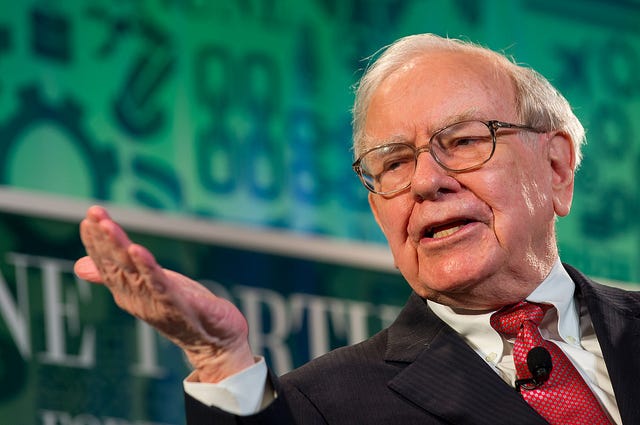What Warren Buffett Can Teach Us About Eliminating Risk
This post was originally featured on ScoreNYC

Warren Buffett, also known as The Oracle of Omaha, has been a shining example of investing and business acumen since he became a billionaire nearly three decades ago. There’s a multitude of lessons to be gleaned from his career, but perhaps most inspiring (and applicable across disciplines) is Buffett’s approach to risk. It’s a philosophy that has served him and his firm Berkshire Hathaway well throughout the years, and encompasses a few key points.
For Buffett and Berkshire Hathaway, risk is a four-letter word. That doesn’t mean that certain deals or investments are risky based strictly on their own merits. Rather, according to Buffett, risk is something that you either create or eliminate on your own through research and due diligence. As he famously summed it up, “risk comes from not knowing what you’re doing.”
We can eliminate risk, according to Buffett, strictly through our own preparation. This means resisting the allure of fast-rising bubbles, or propositions that carry a slight chance of getting huge with better odds of cratering out. For many, this requires a change in how we look at risks in investment. It’s less a dangerous entity to be fearful of than an unmapped territory, worth traversing but only with the right equipment.
Know the Worst Case Scenario
One prominent school of evolutionary thought proposes that species thrive due to an understanding of potential risks, and a thoughtful use of this instinct will serve you well in investing. Buffett’s primary criteria, before getting to the real research, is determining the likelihood of catastrophic failurein the investment you’re considering. Even if the ceiling is high, a low floor means that it’s not a chance worth taking.
A practical approach to investment demands such a measured stance. Some investors are in it for the thrill, but those ups and downs are no way to sustain a portfolio, especially one as consistently profitable as Buffett’s. We hold on to negative memories more than positive ones for a reason: they reduce our chance of getting burned again. One advantage we have over our primitive ancestors? We can do our research.
Expand Your Circle of Competence
The ability to find a safe investment comes from your own knowledge, what Buffett calls your “circle of competence.” Thinking about investing in something new and exciting, like cryptocurrency? Unless you’re versed in volatile internet-based entities, it’s probably best to stay away. As Buffett likes to say “never invest in a business you don’t understand.”
That’s not to say that investment opportunities are a series of tantalizing items labeled “do not touch.” on the contrary, expanding your circle of competence is a primary component investment success. No investor is an instant expert, but building up your knowledge incrementally and organically not only makes you a more well-rounded investor, it sets you up to expand your portfolio as the years go by.
Be Ready to Miss Out on Opportunities
Risk avoidance is often a matter of knowing when to pull the trigger on a deal, and when to let it pass. Think of a professional poker game, the ones you see late at night on ESPN. These high-rolling players fold on the majority of hands, only playing in when they know they’ve got something worth bringing to the table. In investing, Buffett advocates for a similar approach.
A lot of investment opportunities might look enticing, but remember that without the right cards in hand, you’re exposing yourself to unwelcome danger. It’s best to err on the side of caution when you’re dealing with your investment dollar. There are always going to be opportunities, and it’s more about finding the right one for your knowledge than jumping on the same train that everyone else is getting on
Buffett’s refreshing candor about his bets that didn’t pay off illustrates how much success in investment is predicated on a healthy amount of failure. That’s the risk we take everyday, and an unavoidable part of doing business. Everyone faces failure at some point in business and in life. There will be an element of risk and failure in every step you take, especially in investing. You just need to be willing to learn from them.
In short, Buffett’s risk strategy amounts to this: apply a strong deal of hard work and common sense and more often than not, you’ll be able to identify which investments are worth making and which aren’t. This simple approach shouldn’t be too surprising to those familiar with the investment giant’s down-home image, but as is usual with Buffett, a great deal of hard-earned wisdom lies beneath these simple words.
